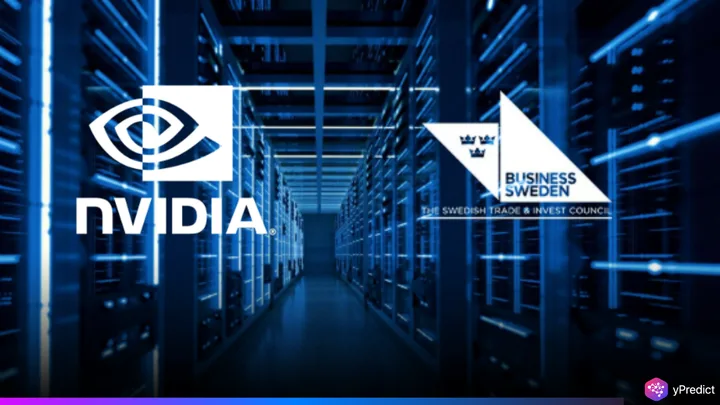
A Swedish business consortium has teamed up with tech giant NVIDIA to build the country’s first enterprise-scale AI infrastructure. The partnership includes major industry players, AstraZeneca, Ericsson, Saab, and SEB, alongside Wallenberg Investments. Together, they will create a sovereign AI factory designed to fast-track innovation across sectors. This new system will be Sweden’s largest supercomputer, powered by NVIDIA’s latest Grace Blackwell GB300 chips. “Investing in cutting-edge AI is key to accelerating Swedish industry,” said Marcus Wallenberg, Chair of Wallenberg Investments. The project is expected to upskill talent, fuel cross-industry collaboration, and strengthen Sweden’s place in the global AI race.
A Supercomputer Built to Power Industry Transformation
The system will be based on NVIDIA’s DGX SuperPOD design and run on the newest Grace Blackwell GB300 chips. Once completed, it will become Sweden’s largest enterprise AI supercomputer. The goal is to offer secure and local computing power for major Swedish companies to train and deploy AI models. It will help speed up complex processes like large-scale model training and reasoning AI.
The new AI infrastructure will be operated by a jointly-owned company. It will also house Sweden’s first NVIDIA AI Technology Center. This center will support local AI research, offering expert guidance and deep learning workshops. “AI is the engine of the next industrial revolution,” said Jensen Huang, CEO of NVIDIA. The partners believe it will create a ripple effect, spreading skills and innovation through the economy.
Driving Drug Discovery, Smarter Networks, and Defense Innovation
Each consortium member will bring its own mission into the AI factory. AstraZeneca will focus on developing AI-driven tools for drug discovery. The company aims to use foundation model training and data processing to speed up new treatments. Ericsson will use its telecom expertise to create smart networks that respond faster and more efficiently. It hopes to unlock new digital services for billions of users.
Saab wants to use AI to accelerate the development of advanced defense systems. Its engineers will test AI applications for both software and hardware. SEB, one of Sweden’s largest banks, plans to apply AI to improve customer experience and operational efficiency. The bank also sees the project as a way to ensure safe access to critical computing power. “It’s about future-proofing our industries with the right tools,” said a SEB spokesperson.
Can Sweden Build an Ethical AI Future?
Sweden’s leap into large-scale AI raises questions about access, oversight, and responsibility. While the supercomputer will boost research and innovation, some experts urge caution. Ethical AI use, data privacy, and algorithm transparency remain key concerns. The consortium says it will prioritize secure, sovereign access, but independent audits may be needed.
Still, the ambition is clear: Sweden wants to lead in responsible, high-impact AI. The country’s unified approach could become a model for others, balancing progress and public trust. With NVIDIA’s support and a strong industrial base, Sweden is preparing for an AI-driven future. Whether it can do so ethically and inclusively will define its success in the years ahead.
Will Sweden’s AI Factory Set a New Global Standard?
Sweden’s AI factory marks a shift from passive AI adoption to active leadership. It combines high-end infrastructure with collaborative development and real-world impact. From healthcare to defense, the system promises to cut costs, shorten timelines, and enable smarter tools. But scale also brings responsibility. As the AI factory expands, Sweden will need to ensure that growing examples reflect values of transparency, safety, and inclusion. If successful, it could provide a platform for similar initiatives in other countries that not only accelerate AI innovation, but ethically and democratically.






